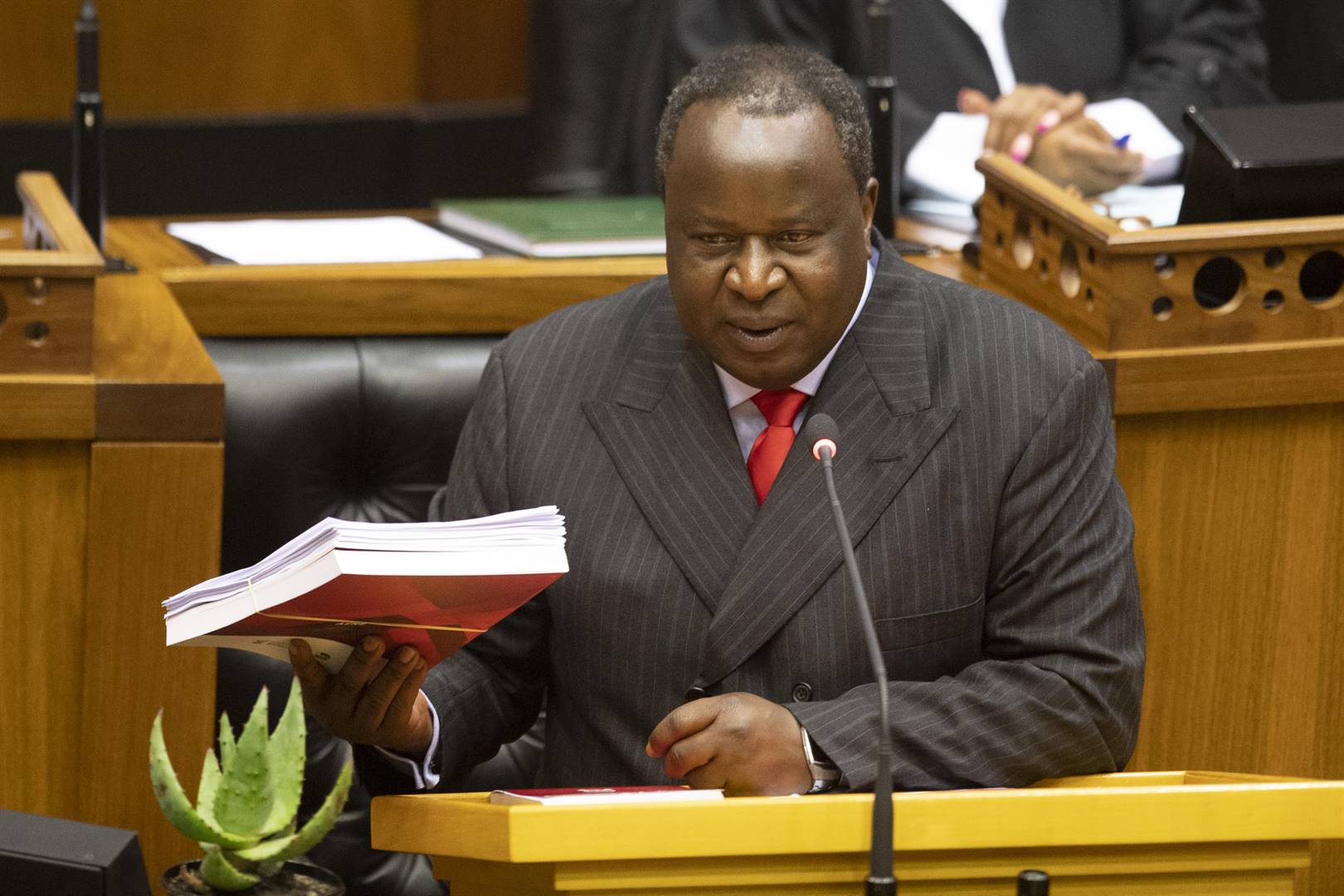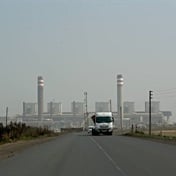
Finance Minister Tito Mboweni has backed down in the face of furious opposition from unions to his suggestion that Eskom’s coal-power stations be auctioned off to private power companies to help bring the beleaguered power utility’s monstrous debt of R450 billion under control.
This is revealed in the latest version of Mboweni’s document on strategic economic growth and structural reforms, which was published on Thursday.
But Mboweni is still clinging to another controversial proposal, which could lead to just as much conflict with unions: an end to collective agreements in bargaining councils that are extended to non-parties.
These non-parties often include much smaller employers in a particular sector which are not members of the bargaining council.
Some of the recommendations made by President Cyril Ramaphosa’s advisory panel on land reform have also been adopted as part of the new strategy document. These include the creation of a land reform fund and a decentralised system, through which land at municipal level can be identified for reform purposes and then acquired with the assistance of the department of rural development and land reform.
The latest version of Mboweni’s plan is slightly longer than its predecessor, which was published in August, because a chapter has been added about the country’s macroeconomic framework.
It reveals that a “more modern” foreign currency framework will be implemented next year. This is intended to promote investment and capital flow across borders, and remove administrative red tape.
“The default for the approval process will be switched to a more limited, transparent and risk-based list, including mergers and acquisitions,” reads the document.
The new chapter confirms Treasury’s commitment to inflation targets and a stable, transparent and disciplined fiscal policy, which, in the early 1990s, succeeded in converting large budget deficits to small surpluses a decade or so later.
It is clear that Mboweni has caved in to pressure with regard to the drastic measures that Treasury favoured to curb Eskom’s debt.
In Mboweni’s initial version, he clearly spelt out that Eskom’s business model was unsustainable and that its debt had become an immense burden on the state’s finances.
However, this assertion has been scrapped, along with the suggestion that Eskom’s coal power stations be sold off at auction.
Instead, the document demands that Eskom again implement the model of costs-plus coal agreements. These are long-term agreements in terms of which the greatest proportion of Eskom’s coal is bought from large mining companies at lower prices.
In terms of the current system, Eskom buys coal from smaller vendors in cash markets.
During Jacob Maroga’s tenure as CEO from 2007 to 2009, the power utility increasingly began buying coal from small suppliers, until another former CEO, Brian Molefe (at the helm from April 2015 to November 2016) eventually said he wanted to do away with the costs-plus system altogether.
According to the document, other urgent short-term steps which must be implemented at Eskom include “enhancing managerial capacity to improve operational efficiencies and facilitate cost-saving; strengthening the board to improve oversight; improving debt-recovery mechanisms and enforcing penalties on municipalities; significantly improving plant performance and maintenance; and securing adequate coal supplies”.
“These interventions should be aligned to the future outlook of a modernised and flexible electricity sector in which fiscal and economic risk are minimised, while simultaneously supporting economic transformation through more entrants into the electricity space,” it goes on to state.
Mboweni emphasises that the future transmission company that will be unbundled from Eskom must operate independently of Eskom.
The only addition he has made to his previous recommendation that the transmission company be established is this: “Enabling the independence of the Single Buyer Office (the transmission company) will ensure the sustainability of independent power providers.”
The document also recommends a move away from social housing for families with an income of less than R15 000 a month. Instead, it proposes that a more demand-side subsidy system be embraced that will enable poor people to build or improve their own homes. “Providing title deeds to past and present beneficiaries is of utmost importance and should be sped up.”
READ: SA spends more than it earns, and the debt crisis is worsening – Mboweni
According to the document, the large amounts being spent on public transport only benefit about 9% of the country’s working population.
Therefore, Treasury recommends that the taxi industry be included in formal planning with regard to a transport policy. For example, the taxi industry manages the Gautrain’s midi-bus service at a number of Gautrain stations.
The regulation of fuel prices should also be reviewed, with an eye on decreasing the cost of public transport.
The initial document recommended banning the practice by supermarket chains of having exclusive rental agreements on the grounds that this excluded competitors.
The new version recommends that an ombud be created to arbitrate disputes and abuses in this regard and place them before the Competition Commission.
The new document also emphasises that ageing and neglected infrastructure is negatively affecting the agriculture sector’s export capacity.
And, it adds, water sources that are increasingly polluted and dysfunctional municipalities are also undermining agriculture. It is therefore imperative that new institutions be created that can protect and manage water sources and operations.




 Publications
Publications
 Partners
Partners









